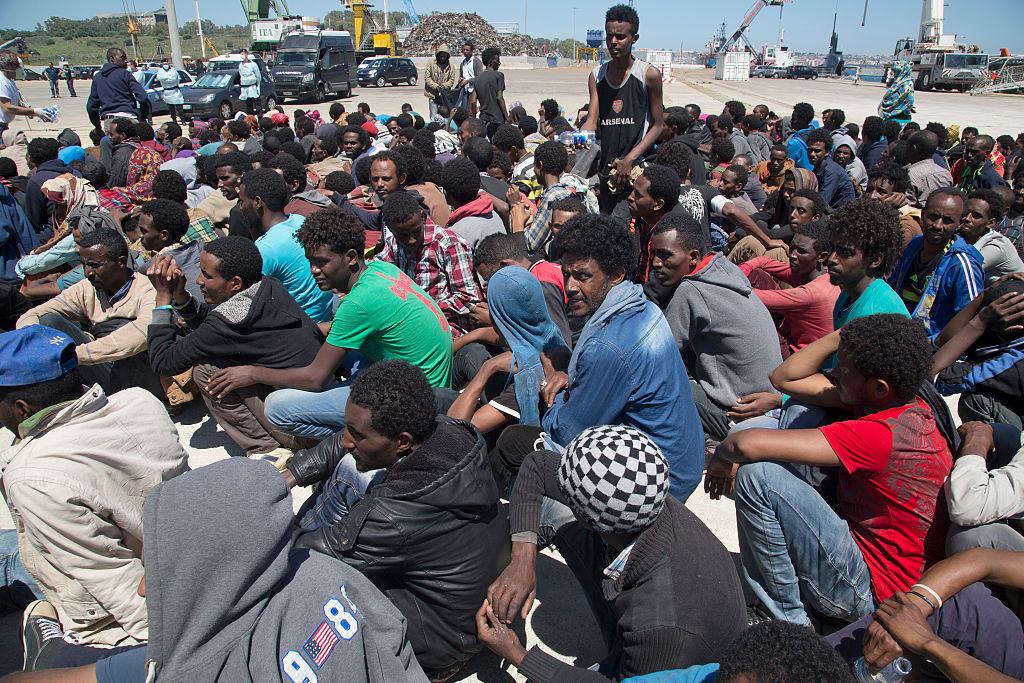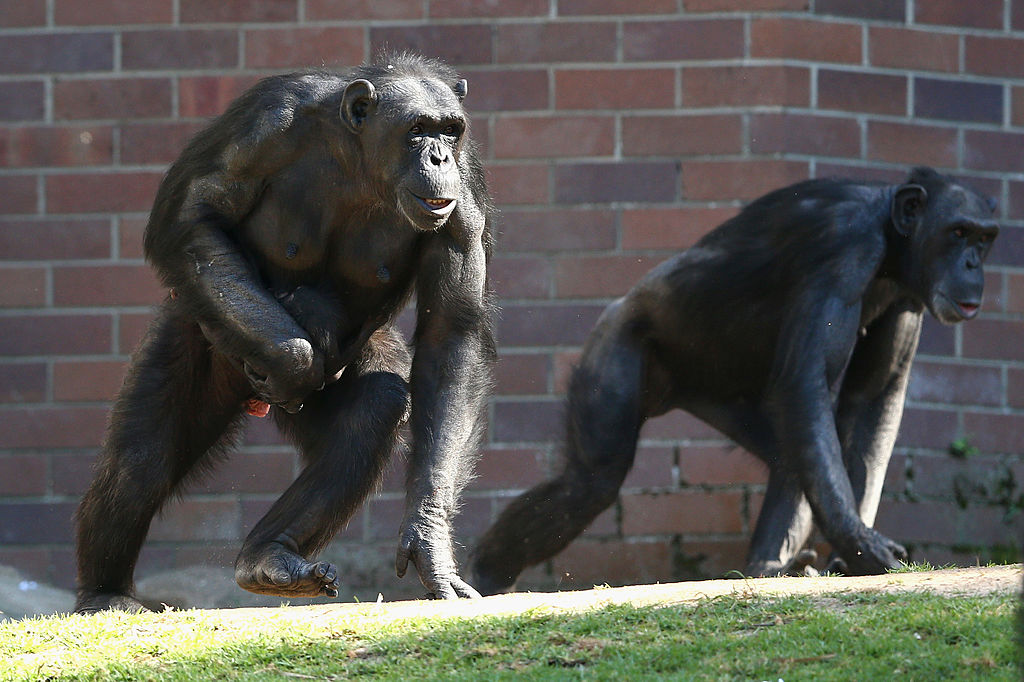What is Europe? Is there such a place? Or is this Europe thing just a creation of a communal imagination that itself exists solely because of a self-defining doctrine? One could say the same thing about Christianity, yet no one seriously proposes that all Christians should live in a single polity. Why should Europeans? What binds a Croat with a Scot, a Swede with a Sardinian? Not language, not race, not creed and not geography. So why should they even try to share the same polity? Where do their common interests lie? Most of all, what emotions unify them?
The last question is the easiest to answer. There are no such emotions. They have certain interests in common – as defined by human need for food, warmth and security, but no more than that. The “nation-building” experiences of the tribal confederations along the Rhine and the Rhone, the Apennines and the Po created shared myths through a common language. But these confederations were often based on rejection of a linguistically-similar neighbour. Ask a Belgian Fleming of his opinion of the linguistically similar Dutch, (extremely low) and you get some sense of the mystery of Belgianness, while the intractable hostility that seems to unite Castilian and Catalan is best left to participants to explain and for outsiders simply to accept as a “fact”. These emotions are as far beyond the ordinary human understanding of outsiders as are the apparent movement of some sub-atomic particles backwards in time.
But if the Russians, the Americans, the Chinese and the Indians can do it, why not the Europeans? That begs too many questions even to allow it the status of a question. The Russians conquered and assimilated and bribed their way from the Pripet Marshes to the Pacific. The Americans carved a lebensraum out of a semi-genocide which, had it been done to Europeans, would today be accounted one of the great crimes in world history. But the outcome was the most dynamic civilisation in the world that paradoxically has made the world free. China and India have roots that so utterly predate Christianity, our languages and our alphabets that we are almost back to sub-atomic particles, apart from this: both sets of peoples intuitively know the meaning of Indianness and Chineseness, rather as the Swiss and Belgians understand the mysterious benedictions of their own identity, which otherwise escape verbal definition.
The truth is that as a group, Europeans have no such unifying benedictions. The existence of a benign and relatively enlightened bureaucracy does not make a “thing” of Europe any more than its ancestor, the Hapsburg empire, brought unity to its component parts. Metaphors usually confuse as much as they enlighten but let us settle briefly on what makes an organism function, namely its cardiovascular system. A bureaucracy does not create one, and no matter how it tries, cannot. It is the natural process of contingency and happenstance that can make discrete and viable symbiotic entities out of coral and jellyfish, but not Spaniards and Swedes. Why is that surprising? Castilians cannot even achieve functional and affable unity with Basque or Catalan, while Swedes co-exist with their Scandinavian neighbours in an endless sibling rivalry that is masked by a Lutheran civility and social democratic dissimulation, or “humbug”, which usually vanishes on the third aquavit.
Europeans are united only by that meaningless word “Europe”, but otherwise, there is no genuine cardiovascular system that people believe in their “hearts”, the defining organ of identity. That eponym is also (and confusingly) often used about economies, so that Germany has often been often referred to as the beating economic heart of Europe. But now it is ceasing to beat and the German economy is beginning to flounder, and so with increasing speed, Europeans are waking up to discover the utter fraudulence of this bogus confection the European Union. Renaming the deutschmark the euro and making it the compulsory currency of much of Europe was the first clear statement of what the EU was all about: the subordination of the economies of the lesser states to that of Germany. The Mediterranean littoral was almost bankrupted in the process as Greece, Spain and Portugal cooked their books to make it seem that their economies were as healthy as that of the Rhineland. Even at the time, everybody knew that it was a lie: but since currency is always built on the unchallenged hope that the coin is not debased, the note is good, the lie passed muster.
But now, the metaphors are coming home to roost. The Germany economy is failing. Perhaps worse – and it is hard to know what is worse than the guarantor of a currency failing to honour a promissory note – is the sudden realisation that the EU has no cardiovascular system. How this could now be a “sudden” realisation is surely a measure of the hallucinogenic delirium in which the Union was forged. But the visitor from Porlock has ended the dream – or more prosaically, the arrival of a Russian hypersonic Oreshnik missile hitting Ukraine. There is nothing that the EU (as the EU) can do about this, just as there is nothing that the EU can do to stop Russian missiles hitting Berlin or Brest, or to prevent Russian submarines off the Irish coast destroying the underwater cable nexus that umbilically links Europe with the USA.
The dream is over, yet for some the delirium continues: hence, the former Portuguese Prime Minister Antonio Costa, now the President of the European Council, tweeting on X over the weekend, “from day one of the war, the EU has stood by the side of the Ukraine…we are reaffirming our unwavering support….Peace must not reward aggression.”
Every single word of that, including “the”, “by” and “our”, is meaningless gibberish. There is no sentient human being in the world who does not know that whatever peace is achieved in Ukraine will certainly reward aggression, and that Russia will keep Donbas and Crimea. Ukraine is now suffering from mass desertions – some reports even say as many as 100,000 men have fled the battlelines – even as the EU “reaffirms” its “unwavering support”. What is unwavering about that support? As unwavering, say, as Peru’s? Neither has sent to troops to Ukraine: is that what “unwavering” really means? Who knows?
So, the infirm and querulous presidency of Ursula von der Leyen begins its second chapter as the EU reveals that it really is a man of straw. This is a suitable analogy for the woman on whose watch as German Defence Minister not a single German U-boat could go underwater, Bundeswehr soldiers on Arctic warfare exercises carried broom handles, and unisex main battle-tanks were redesigned to accommodate pregnant drivers. Still, the euro-illusion went on, the US would always be there to compensate for Europe’s inability (actually, refusal) to defend itself, so in the long run, all would be well.
Even without the hypersonic detonation of the Oreshnik missile in Ukraine, we were probably never going to hear the rest of Coleridge’s dreamy ode: Trump’s election made that a certainty. The days of the US rescuing us are over. Europe is now partially awake, its follies all exposed, its grandeur an utter illusion. The EU cannot be a US, a Russia, a China or an India. The underlying and historical truths of its existence rebut that possibility. That is its tragedy, from which there can be no escape. Out of the tapestry of a vastly complex past is woven the threadbare rags and patches of Europe today, presided over by the forlorn and sorry figure of von der Leyen, a broken harpy crooning her witless hallucinogenic anthem to a lost imperial Xanadu – And all who heard should see her there, And all should cry, Beware! Beware! Her flashing eyes, her floating hair! Weave a circle round her thrice, And close your eyes with holy dread For she on honey-dew hath fed, And drunk the milk of Paradise.
Kevin Myers is an Irish journalist, author and broadcaster. He has reported on the wars in Northern Ireland, where he worked throughout the 1970s, Beirut and Bosnia.





The party was great, but expect vengeance from the people Trump defeated